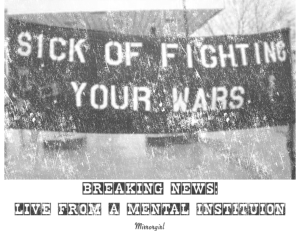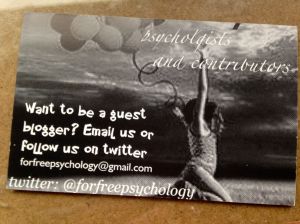
 An anchor woman holds her microphone steady as she reports live from ‘We have the power’ , an old mental institution where the walls should have been painted decades ago. Her voice intermingle with twenty other reporters looking seriously into the camera, pointing occasionally to the building behind them. The anchor woman turns her voice dramatically down when she arrives at the conclusion.
An anchor woman holds her microphone steady as she reports live from ‘We have the power’ , an old mental institution where the walls should have been painted decades ago. Her voice intermingle with twenty other reporters looking seriously into the camera, pointing occasionally to the building behind them. The anchor woman turns her voice dramatically down when she arrives at the conclusion.
“Sources tell us that in this mental institution, often just keep patients long enough to give them medication before they send them back. They sometimes don’t arrive at the right diagnose, and it is rumored that they don’t take enough time with traumatized victims or that they even consciously decide not to talk about what they have experienced. Only 30% report that they felt better or had hope for the future after being released, and surveys show that staggering 20 % of the patients will be readmitted after not receiving the help they wanted”
Her face is now full of rage. Her mother killed herself after being hospitalized in a mental health clinic. When she had read through her mother’s journal she saw how many pills she was on, barbiturates strong enough to knock out a mammoth. When she tried to find therapy notes where her mother could process her traumatic past, she only found short conversations where the doctors wanted to know if she slept well, eat what she should or if she felt a bit better after taking another pill. She shouldn’t even be reporting, but she manages to do her job, t is important for her to get it all out there.
Another reporter talks with the direction, who promises that they will do everything to make this right. They will look into their routines and see what they can do to make sure this will never happen again.
The news report goes viral. Oprah dedicate her next show to the cause, and Internet users on Twitter have started protest demonstrations, venturing into the street with their fists pumping in the air as they chant: ‘Stop this, stop this, stop this’. They bring posters where with personal accounts: ‘My mother only got three days in the institution, when her depression intensified they said they have done everything they could so she was not prioritized. Take mental health seriously!” Some write messages to the government. ‘We want that our tax payers money go to mental health care for the 450 billions who needs better treatment” or “Why only research on drugs?”. The protesters don’t make to much of a fuss. They don’t shout out obscenities, but they gather in every city, staying put and showing their support. They have started a peaceul war.
Why don’t we see this in the real world? Where is the public outcry over the state of unsatisfactory mental health care? When someone breaks a leg, we demand full treatment until the injury is fully treated. We never take off the bandage after three weeks instead of six, telling our patient that they can come back if the leg breaks again as it will because it simply was not healed. We protest when the plumber does a bad job, demanding to sue them if they don’t come back and fix it. When politicians have done something wrong, news papers write about it for days, as they do when an actress have broken down and been sent to rehab. But where are the headlines after it thousands of citizens have been ignored by the health care system? Where are the depth interviews with families who’ve seen their loved ones break down after unsuccessful treatment?
In my future news scenario, the media would focus on mental health daily. They would write nuanced articles on every subject relating to how we suffer and what our options are when we do. There would be demonstrations to so that we get what we need.

We would all be small Ghandies, damanding justice. We wouldn’t close our eyes, we would engage and try to change things. The media would not ignore us.
In my future utopia, the mental institution ‘We have the power’ would change their ways. They would give the power back to their patients, not giving up before they had tailor made the treatment that was right for them. They would listen to them and find their resources.
They would use money on educating their employees, giving their patient the very best care. We do it with cancer patients, we even do it at Starbucks to make sure that the customers are a hundred percent satisfied with their coffees. I dream about a world where surveys about how satisfied their patient are with their treatment. Why shouldn’t we give mental health all of our attention? When almost a fourth of us have psychological issues, stigma should be lifted by never ignoring our troubled minds.
We should not be afraid to speak up.
More:
Mental health research in India
Stigma | Mental Health Commission of Canada
Readmission Rates for Mental Health Patients – NBRHC
Strategies for reducing stigma toward persons with mental illness

















 More than a century ago, scientists discovered something usual about how people with
More than a century ago, scientists discovered something usual about how people with